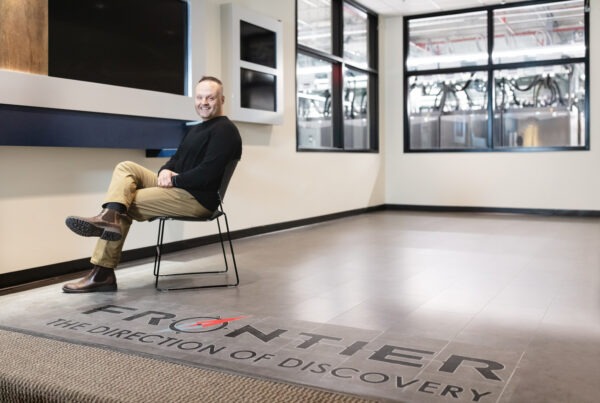
ISC has been bringing HPC experts together for 30 years, and OLCF staff always look for ways to take leadership roles at the conference.
For more than 30 years, high-performance computing (HPC) experts from around the world have gathered to share supercomputing ideas, insights, and innovations at the International Supercomputing Conference (ISC).
This year’s conference, held earlier this summer in Frankfurt, Germany, continued this tradition of cooperation. Always looking for an opportunity to collaborate with HPC experts, staff members from the Oak Ridge Leadership Computing Facility (OLCF)—a US Department of Energy (DOE) Office of Science User Facility located at DOE’s Oak Ridge National Laboratory (ORNL)—came to teach, learn, and discuss the future of supercomputing.
“In the fast-moving world of high-performance computing, maintaining and extending leadership require keeping up to date with the latest developments from an international community of experts. The ISC conferences provide such an opportunity,” said Jack Wells, OLCF director of science.
Wells, along with Dirk Pleiter from the Forschungszentrum Julich in Germany, organized a workshop focused on OpenPOWER—a nonprofit consortium dedicated to supporting software and hardware solutions for IBM’s power architecture. The goal of this workshop was to provide a venue for the broader HPC community to understand OpenPOWER technologies and discuss how to harness them for HPC application needs.
“The OLCF is only beginning its work with OpenPOWER technology in advance of Summit’s arrival in 2018,” Wells said. “This is the case for everyone, as the OpenPOWER Foundation was only established in August 2013. This workshop gave evidence that many in the HPC community are already putting in significant effort for exercising OpenPOWER technologies.”
Much of the OLCF’s efforts at ISC centered around training HPC users to program codes in different programming environments, ultimately setting users up to have the most portable codes possible.
Jeffrey Vetter, group leader of ORNL’s Future Technologies Group, took part in a panel discussing the future of parallel computing. The panel addressed, among other issues, both the challenges associated with massively parallel supercomputers and the different approaches for resolving those challenges through data management, data analysis, and portable coding.
Meanwhile, OLCF user support specialist Fernanda Foertter co-organized a tutorial aimed at training researchers how to program their codes using Fortran—a general programming language well suited for scientific computing. Though countless researchers use Fortran for their applications, many describe their understanding of the environment as being self-taught, and many still use older versions. The ISC event allowed Foertter and her collaborators to introduce researchers to new Fortran functionality and train them to work most efficiently within the code.
In addition, ORNL postdoctoral researcher Graham Lopez helped organize a session dedicated to teaching attendees best practices for programming codes to not only run well with accelerators, such as the NVIDIA GPUs used by the OLCF’s Titan supercomputer, but also easily run on different computing architectures.
“This workshop is important to HPC researchers in all application domains,” Lopez said. “No matter which architectures or accelerators researchers are using, increasing portability and productivity is a common goal and difficult problem to solve.”
For more information on this year’s ISC, please visit: https://www.isc-hpc.com/id-2016.html.
Oak Ridge National Laboratory is supported by the US Department of Energy’s Office of Science. The single largest supporter of basic research in the physical sciences in the United States, the Office of Science is working to address some of the most pressing challenges of our time. For more information, please visit science.energy.gov.






